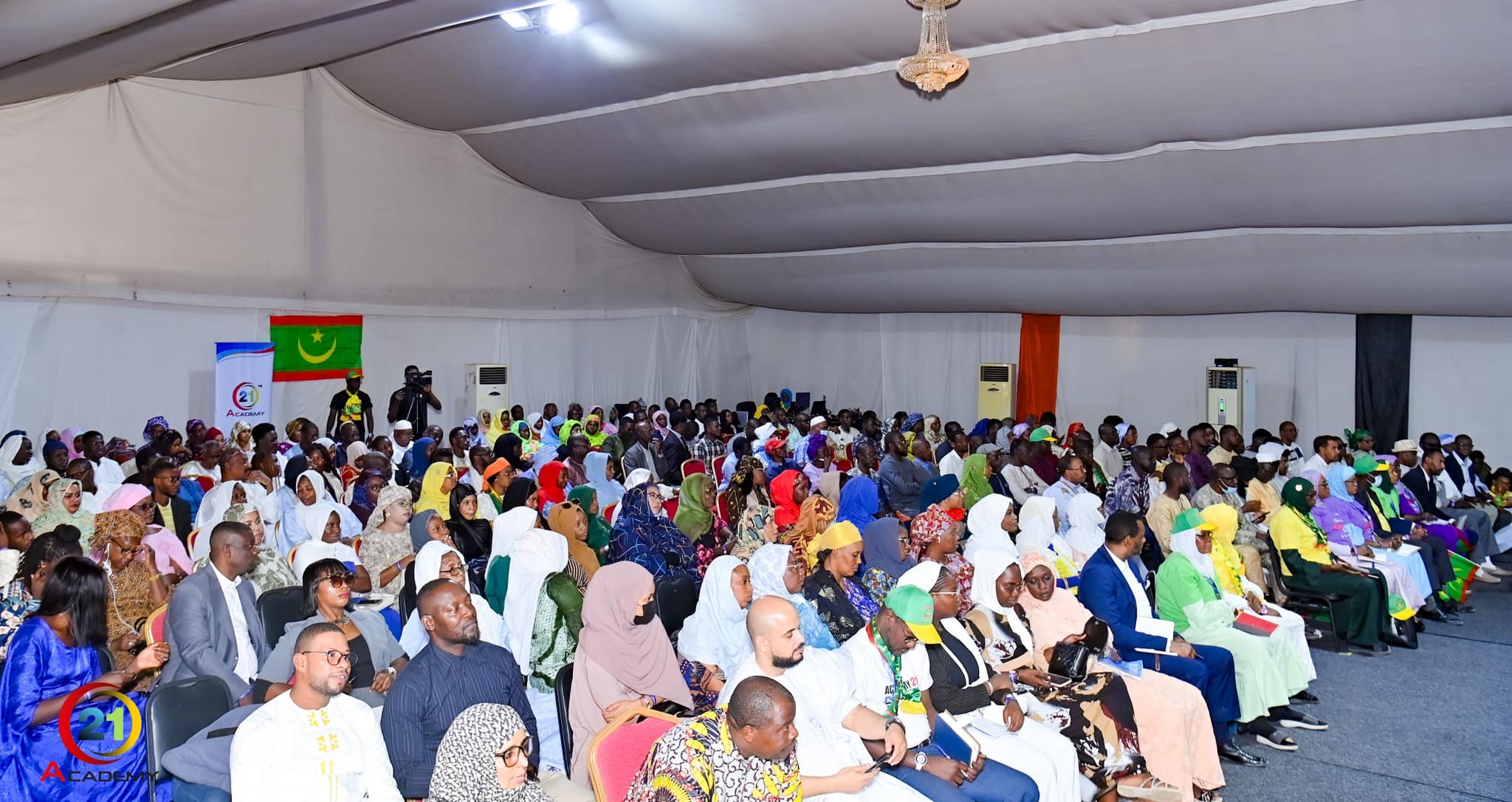MASKS AND GIMMICKS MAY BE IMPRESSIVE FOR A WHILE, BUT IT'S THE SINCERITY THAT CREATES A DEEP BOND.
In an ever-changing professional world, building a competent and cohesive team has become a strategic imperative for any organisation that wants to thrive. Such a team is not just made up of talented individuals, but a harmonious group capable of working together towards common goals. The synergy created by a well-integrated team can multiply efficiency and productivity, enabling complex challenges to be tackled and continuous innovation to take place. By investing in skills development and group dynamics, organisations can not only improve performance, but also create a positive working environment that fosters creativity and commitment.
In addition, a cohesive team strengthens the organisational culture and provides a solid foundation for lasting interpersonal relationships. Trust and open communication are crucial elements that arise when team members know each other well and share a common vision. This reduces internal conflict and fosters an atmosphere of collaboration, which is essential for effective problem solving. Ultimately, a competent and cohesive team is not only an asset to the organisation, but also a key factor in its resilience in the face of uncertainty and market challenges. Who better to understand this reality than someone who has been through the process of building a giant organisation only to see it collapse before his helpless eyes? That person is Dr Raoul Ruben, a pioneer of network marketing in Africa who is now Chairman and Founder of the prestigious Academy Twenty One organisation. As part of his tour, he dropped his bags in Mauritania, the 143rd country he has visited thanks to this wonderful activity. And in this country of incomparable hospitality and life skills, he was at the helm of a gigantic A21 ORIENTATION, where he focused his communication on the need and importance of building a competent and coherent team, the guarantee of resounding success in MLM. He presented 23 fundamental principles that are essential for building a successful MLM team.
1. *Encourage autonomy.*
Autonomy is essential for developing a competent team. By allowing members to make decisions and manage their own tasks, the leader fosters a sense of responsibility and commitment. It is important to encourage them to set their own goals and find creative solutions. This builds confidence and encourages initiative.
2. *Be a good mentor* .
A good mentor doesn't just lead; he or she guides, advises and inspires. They share their experience, offer practical advice and listen to the concerns of their team. Mentoring promotes professional and personal development, enabling members to grow in their roles with confidence.
3. *Recognise successes (even small ones).*
Recognition plays a crucial role in motivation. Celebrating even small victories helps to create a positive environment. This can take the form of public thanks, rewards or simple words of encouragement. Celebrating success builds self-esteem and encourages the pursuit of excellence.
4. *Provide resources* .
Providing the necessary resources is fundamental to the success of a team. These include tools such as the A21 kit, training, seminars and relevant websites. It is the leader's responsibility to ensure that everyone has access to the information and support they need to do their job effectively.
5. *Create a thirst for knowledge* .
In an organisation, the leader who wants to see his or her organisation and community flourish must encourage a continuous learning environment. He or she must provide training, reading or discussion that stimulates intellectual curiosity. Creating a space where learning is valued encourages members to stay informed and develop new skills, which strengthens the whole team.
6. *Encourage risk-taking.*
Taking calculated risks is essential to innovation. It is important for the leader to encourage the team to step out of their comfort zone and try new approaches. Failure is not an end in itself, but a learning opportunity. Creating a culture where failure is seen as a step towards success , is a great strength for the solidity of an organisation.
7. *Encourage collaboration and healthy competition.*
Working together strengthens the bonds within the team. It's also a good idea to organise activities that encourage teamwork, as well as friendly competition. This builds team spirit and improves results. Make sure that competition remains positive and constructive, so as not to create tension and emotional rifts.
8. *Model the desired behaviour.*
As a leader, actions speak louder than words. That's why leaders need to model the behaviours they want to see in their team members. Whether it's integrity, collaboration or innovation, the leader's example is a powerful inspiration for the organisation.
9. *Remain available.*
A leader's availability is crucial to building trust. He or she must be accessible to discuss concerns, give advice or simply listen. Open communication strengthens relationships and makes everyone feel supported and valued.
10. *Personalise the support programme.*
Every team member has different needs and learning styles. The leader must be able to tailor the approach to each individual in the team. They must also create personalised coaching programmes that take into account each person's strengths and weaknesses in order to maximise their potential.
11. *Promoting work-life balance.*
A healthy work-life balance is essential for employee well-being. An effective organisation must encourage practices that promote this balance, such as flexible working and adapted working hours. A fulfilled employee is often more productive and committed.
12. *Encouraging personal reflection.*
A great way to promote awareness and continuous improvement is to invite team members to reflect on their performance and objectives. Setting aside time for this introspection to help everyone progress is a salutary initiative if the leader wants to see his or her team grow serenely.
13. *encourage innovation.*
Monotony is a major threat to the survival of any organisation. Once routine has set in, the death of the community is almost inevitable. It is therefore vital to establish an environment in which innovation is not only accepted, but actively encouraged. To achieve this, it is essential to organise brainstorming sessions where individuals can share their ideas freely. This can lead to creative solutions and improved processes.
14. *promote diversity and inclusion.*
Diversity brings varied perspectives that enrich the team. It is essential to foster an inclusive environment where individuals feel valued, irrespective of their background. This approach fosters creativity and innovation while strengthening team cohesion.
15. *encourage curiosity and self-improvement.*
Without passion, it is difficult to achieve meaningful results. Passion fosters curiosity, which is a fundamental aspect of team development. It is vital to encourage all individuals to ask questions, explore new ideas and challenge themselves. This fosters a culture of continuous learning and improvement, which is essential for the growth and success of our organisation.
16. *Promote Learning by doing*
Learning by doing is a highly effective method of developing skills and knowledge. It is important to acknowledge that every effort will inevitably be accompanied by setbacks. Success rarely comes spontaneously; therefore, it is essential to learn to transform mistakes into valuable learning opportunities. Every leader's mission should be to create an environment where failures are analysed in order to learn from them. This fosters resilience and adaptability within the team when confronted with adversity.
17. *Promote self-assessment.*
Self-assessment allows members to identify their skills and areas for improvement, encouraging personal responsibility and initiative.
18. *Establish partnerships.*
Partnerships with other teams or organisations can enhance team experience by facilitating the exchange of skills and knowledge, and broadening perspectives. Encouraging external collaborations can also bring new perspectives.
19. *learn from everyone, including those with less experience.*
All individuals within the team are capable of making a contribution, irrespective of their level of experience. A competent and cohesive team fosters an environment where ideas and contributions are valued, irrespective of hierarchy. This promotes a climate of respect and collaboration.
20. *create ongoing challenges.*
These challenges are known to stimulate commitment and motivation. Following a successful project or task, it is essential to regularly propose projects or tasks that are out of the ordinary, in order to push the team to excel. This approach can contribute to the promotion of a culture of excellence and innovation.
21. *Promoting adaptability and self-control.*
In an environment that is subject to constant change, adaptability is of the essence. It is essential for leaders to encourage their teams to cultivate this skill by being proactive in facing challenges and adapting swiftly. Self-control is also essential for managing stress and the unexpected.
22. to develop resilience.
Resilience is key to helping team members overcome obstacles. A further key challenge for leaders is to create an environment where failures are seen as learning opportunities and mutual support is essential. This fosters a team-wide ability to recover quickly from setbacks.
23. encourage analysis and anticipation.
The ability to analyse situations and anticipate potential problems is vital. The leader must encourage their team to adopt a proactive approach, regularly assessing risks and planning solutions. This approach fosters informed decision-making and effective project management.
In view of the above, the combination of these statements forms a fairly rigid backbone that guarantees success in MLM. The development of a competent, cohesive team is a strategic process that integrates individual talents to create collective synergy. This necessitates a clear vision of the common goal, combined with shared values that serve as a foundation to unite the members. A competent team is first and foremost made up of individuals whose skills complement each other, offering a diversity of perspectives and know-how. However, what is often overlooked is the importance of coherence in transforming a simple association of individuals into a harmonious organism. This is based on open communication, mutual trust and inspirational leadership. The latter plays a central role in aligning members with a common vision, while ensuring that everyone finds their place and feels valued. Coherence does not mean the absence of conflict, but the ability to manage disagreements constructively, to strengthen rather than divide.
This was the message conveyed to the people of Mauritania by Dr Raoul Ruben: an open-mindedness and seriousness that was to become the hallmark of the nation. The people of Mauritania have demonstrated remarkable humility, a strong desire to learn, and a commendable character. As part of this tour, which will conclude in March with the A21 ANNUAL CELEBRATION and the A21 LEADER CAMP, it appears that he is reinvigorating his energy in anticipation of the upcoming conferences.

